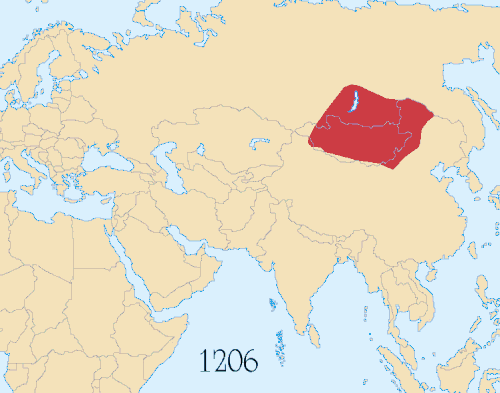Mongol Empire
Not to be confused with Mughal Empire.
The Mongol Empire (Mongolian: Mongolyn Ezent Güren listen ; Mongolian Cyrillic: Монголын эзэнт гүрэн; Mongolian pronunciation: [mɔŋɡ(ɔ)ɮˈiːŋ ɛt͡sˈɛnt ˈɡurəŋ]; also Орда, ‘the Horde’ in Russian chronicles) existed during the 13th and 14th centuries and was the largest contiguous land empire in history. Originating from Mongolia, the Mongol Empire eventually stretched from Eastern Europe and parts of Central Europe to the Sea of Japan, extending northwards into Siberia, eastwards and southwards into the Indian subcontinent, Indochina and the Iranian Plateau; and westwards as far as the Levant and the Carpathian Mountains. The Mongol Empire emerged from the unification of several nomadic tribes in… Continue Reading